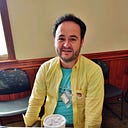Member-only story
Saluting the artistic integrity of Rick Nelson decades after his shocking death

Rick Nelson lost his life in a serene cow pasture some two and a half hours northeast of Dallas, Texas, en route to a New Year’s Eve sock hop sponsored by KLUV-FM at the Park Suite Hotel.
Among the sophomore class posthumously inducted by John Fogerty into the Rock and Roll Hall of Fame, Nelson, unassuming fiancé Helen Blair, four band members, and a soundman were passengers in a World War II-era, white with black-and-gold trim DC-3 that caught fire when a gasoline-fed cabin heater failed to light properly.
Both pilots, though severely burned, survived the emergency landing. Formerly owned by Jerry Lee Lewis, the malfunction-plagued aircraft prevented Nelson from participating in the inaugural Farm Aid benefit all-star concert held three months prior.
Greatly admiring Nelson’s artistic integrity — the seeds were sown after hearing the moral victory embodied in the singer-songwriter’s “Garden Party” anthem as an enterprising 18-year-old freshman-music magazine editor at Buffalo State College in upstate New York — veteran journalist Philip Bashe unleashed the long out of print Teenage Idol, Travelin’ Man: The Complete Biography of Rick Nelson in 1992. The authoritative biography places the reader in the Rio Bravo star’s shoes and in his head — you realize why he did the things that he did.
Currently indulging his passion as a full-time editor — mostly for Simon & Schuster and Random House — Bashe occasionally toys with completing a book on parenting a child with autism. In the meantime he graciously agreed to take readers on a comprehensive journey examining his fascination for a genuinely talented heartthrob singer who stayed true to his music at a substantial personal cost.
The Complete Philip Bashe / Rick Nelson Interview
What was your background in rock writing, and how did it lead to Rick Nelson?
I’ve always been a writer. While I was in college in Buffalo, New York, I had started my own music magazine called Foxtrot, sort of an ersatz Rolling Stone. When it came time to graduate, it was pretty popular, so I figured, ‘Why be an employee when you can be an employer?’
